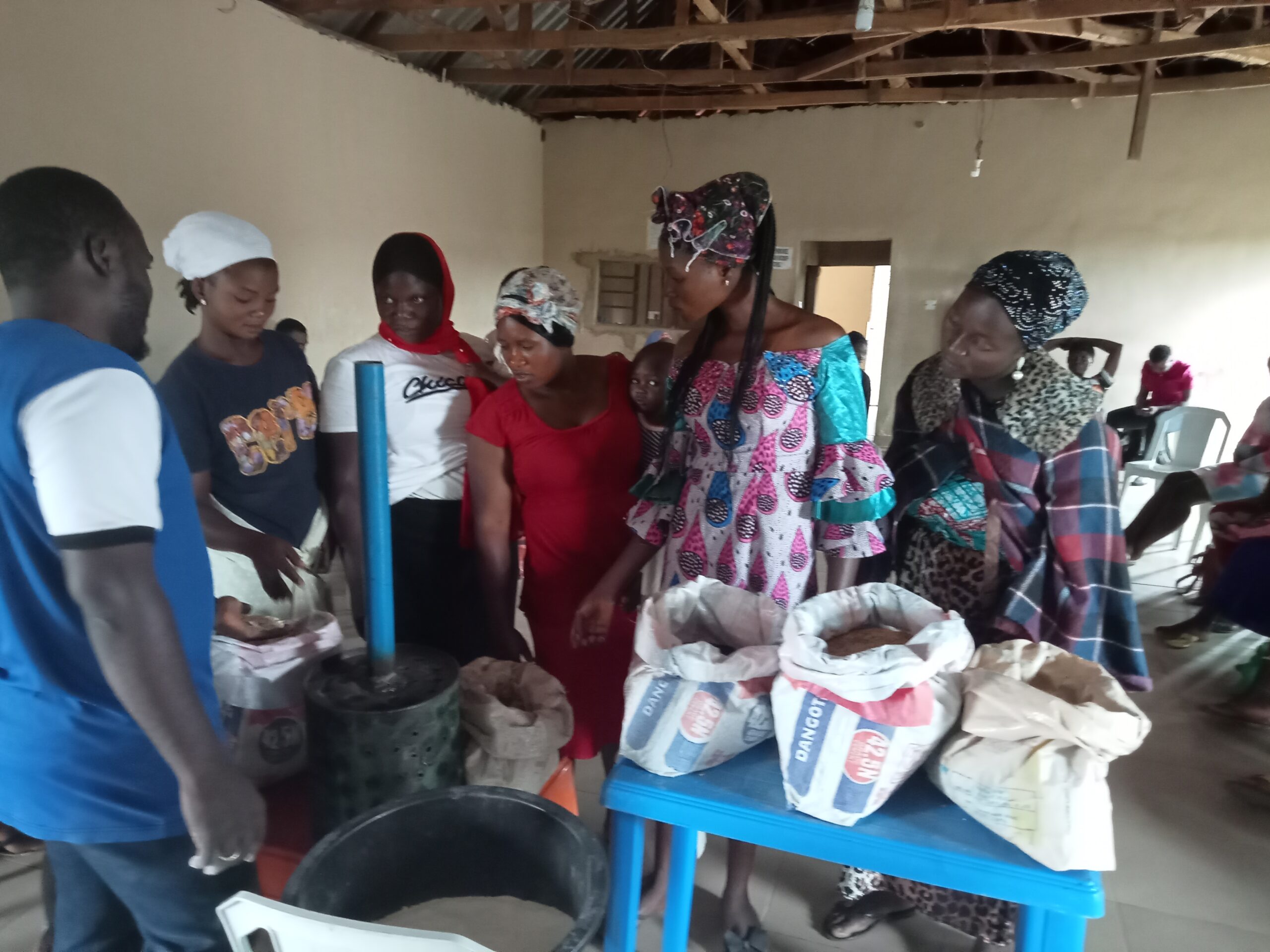By Hassan Zaggi
In an effort to fight child malnutrition in the Federal Capital Territory (FCT), the European Union Agents for Citizen- Driven Transformation (EU-ACT) in partnership with the International Society of Media in Public Health (ISMPH), has organised a three-day skill acquisition training for women in Bwari Area Council.
The project which is being funded by the EU ACT and implemented by the ISMPH is currently training 30 women in the first phase in Bwari. The beneficiaries are drawn from the poorest of the poor whose children are malnourished.
Poor women with malnourished children in Kwali Area Council of the FCT will also benefit from the skill acquisition training in the next few days.
Responding to questions from journalists at the opening ceremony of the 3-day training, the Executive Director of ISMPH, Mrs Moji Makanjuola, said that the training was aimed at halting child malnutrition in the area through the women empowerment.
Represented by the Programme Director of the ISMPH, Solomon Dogo, Mrs Makanjuola, disclosed that the women will be trained on how to produce organic fertilizer, charcoal and other skills in order to empower them to be able to take care of their children and also support their families.
“The idea behind this training is to curb malnutrition in children in FCT through training and empowering women on how to produce organic fertilizer and other products so that they can have means of survival.
“We have noticed that one of the major causes of child malnutrition is poverty. Most people in some parts of the FCT do not have means to take care of their nutritional needs.
“We decided that we are going to train and support women (the poorest of the poor among them). Women whose children are malnourished to be able to have skills so that they can support their families. This, we believe, will reduce child malnutrition to the barest minimum,” she said.
According to her: “For the first phase, we are training 30 women and we hope that the community will intervene so that we can train more women in the days ahead.
“We want to see the community take ownership of the initiative so that more and more women will benefit from the training.”
Mrs Makanjuola applauded the Etsu Bwari, Dr. Ibrahim Yaro, the Bwari Area Council and other community leaders for showing interest and supporting the initiative.
The ISMPH Executive Director revealed that after the training: “We are going to provide the women with the machine they will use in producing the organic fertilizer. They will own the machine and keep producing the fertilizer after the training.
According to her: “To ensure that they are putting the skills acquired to use, we are going to be monitoring them at intervals. We also implore the media to join us in monitoring the progress and impact of the project so that the targeted aim will be achieved.
“Our programme officer will be in touch with these women and we intend to come back for a refresher training to ensure that the woman get the skills they need to stand alone and begin mass production of the product they have learnt.”
Speaking, the Estu of Bwari, Dr. Ibrahim Yaro, applauded ISMPH for the initiative and vowed his support to ensure that many women in the area benefit.
Represented by the Secretary of the Bwari traditional council, Amos Musa Bwari, the Royal father said that the training will help the women and their entire families.
“This is because it will help them to take good care of their families, feed their children and also support their husbands,” the Etsu Bwari said.
While saying that he was ready to provide all the needed support, the Royal Father said: “We are expecting that after the training, these women will be able to put to use what they have learnt and be able to produce fertilizer, charcoal and other things.”
One of the beneficiaries who is a mother of two children, Florence John, said that the training was timely as, according to her, most of the residents of the area are poor and only depend on farming activities to survive.
“This training will help us because, as it is now, most of the farm lands are weak, hence, they need fertilizer. With this training, we can produce the fertilizer that we will use in our farms to improve our yield.
“We have all the raw materials around us here that we can use for the mass production of the fertilizer and charcoal.
“Many of us don’t have any work or skill in our hands and poverty is high among us here, hence, this training will be of help to us and indeed, the entire community,” she said.



